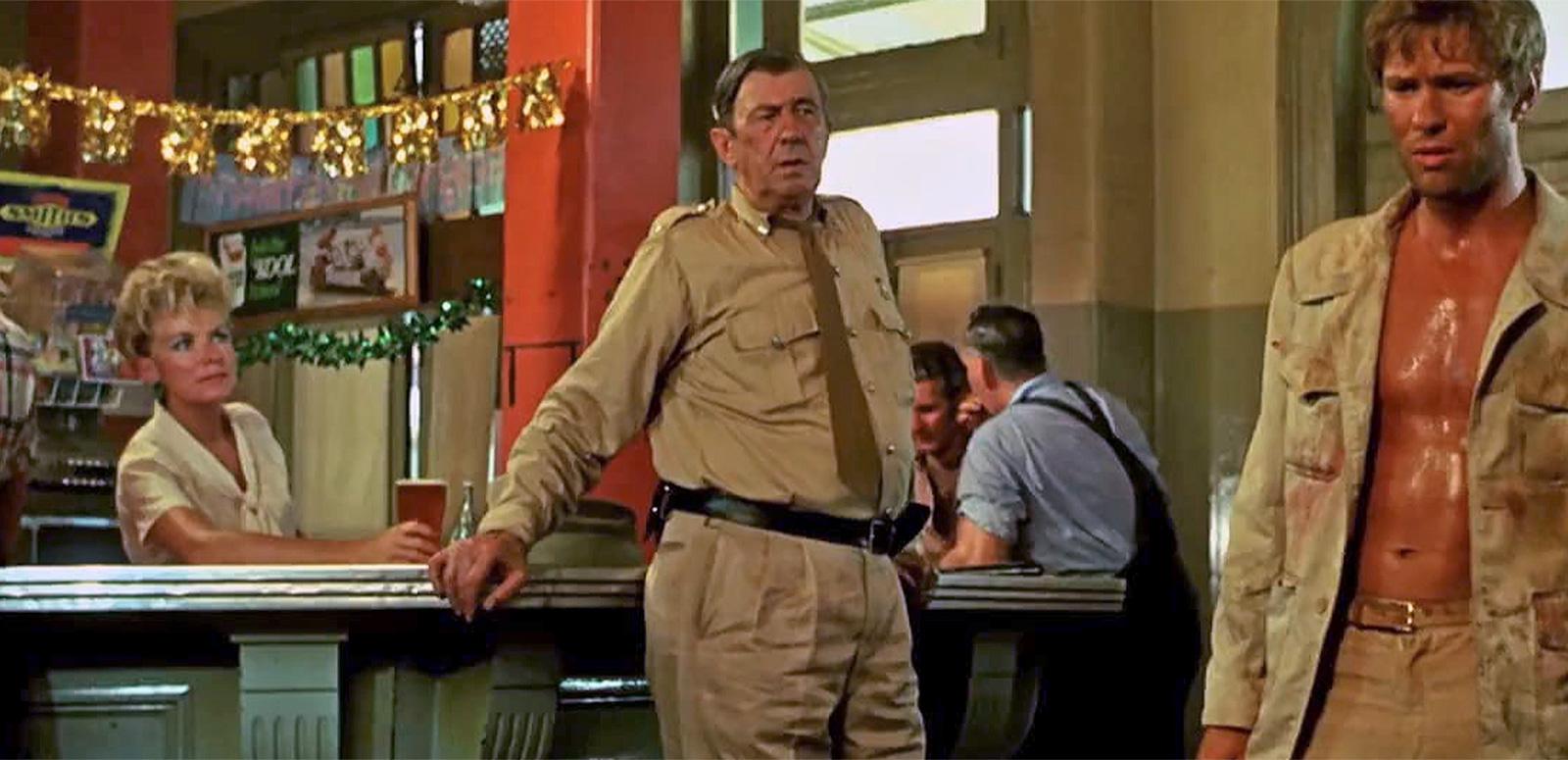In 2018, film historian Dr Andrew Pike delivered this special presentation at the NFSA on the legend of Australian film icon Chips Rafferty. He discussed creating the character of Chips and examined his most famous film, The Overlanders (1946):


In 2018, film historian Dr Andrew Pike delivered this special presentation at the NFSA on the legend of Australian film icon Chips Rafferty. He discussed creating the character of Chips and examined his most famous film, The Overlanders (1946):
Dr Andrew Pike's presentation at the NFSA on Chips Rafferty and The Overlanders, 2018
Born John Goffage in 1909, Chips Rafferty became an icon of the Australian film industry who also found international stardom.
He worked as a drover and opal miner before venturing into acting, appearing as an extra in Come Up Smiling (William Freshman, Australia, 1939). His big break internationally came when he played one of the three leads in Forty Thousand Horsemen (Charles Chauvel, Australia, 1940), one of the first Australian films to receive international recognition. Watch the film's trailer:
Forty Thousand Horsmen (trailer), 1940. Courtesy Ric Chauvel Carlsson. NFSA title:1189934
At the outbreak of the Second World War, Rafferty enlisted in the Royal Australian Air Force but continued his film career when on leave. Whilst in service, he starred in the hit war film The Rats of Tobruk (Charles Chauvel, Australia, 1944). Rafferty was discharged from the Air Force in 1945.
In 1946, Rafferty starred in The Overlanders (Harry Watt, UK–Australia, 1946). Produced by Ealing Studios, the film was a worldwide success and Rafferty was offered a contract with the studio. Watch a newsreel clip about the film's Australian premiere:
The Overlanders premiere at the Lyceum Theatre, 1946. Courtesy: Cinesound Movietone Productions. NFSA title: 84055
Whilst in England to promote the film, he took a role in the British historical drama The Loves of Joanna Godden (Charles Frend, UK, 1947). Back in Australia, Rafferty played lead roles in Eureka Stockade (Harry Watt, UK, 1949) and Bitter Springs (Ralph Smart, UK–Australia, 1950), but both films were box-office disappointments and Ealing Studios soon closed their filmmaking operations in Australia.
In the 1950s, Rafferty moved into producing, working with Australian writer–director Lee Robinson on films like The Phantom Stockman (Lee Robinson, Australia, 1953) and Walk Into Paradise (Lee Robinson, Australia–France, 1956). The latter, filmed on location in Papua New Guinea, screened at the 1956 Cannes Film Festival in competition.
In the 1960s, Rafferty starred in overseas films like The Wackiest Ship in the Army (Richard Murphy, USA, 1960), opposite Jack Lemmon, and Mutiny on the Bounty (Lewis Milestone, US, 1962), starring Marlon Brando.
He returned to Australia for a memorable role in the hit They’re a Weird Mob (Michael Powell, Australia–UK, 1966), and guest-starred in Australian TV series like Skippy the Bush Kangaroo. Rafferty performed his final film role as an outback policeman in the 1971 classic Wake in Fright (Ted Kotcheff, Australia–US–UK, 1971), filmed in his hometown of Broken Hill (and pictured in the main image, above).
Below is an extract from an ABC-TV obituary of Rafferty, featuring an interview with director Ken G Hall talking about his against-type performance in Wake in Fright and his overall contribution to Australian film:
Ken G Hall interviewed for Chips Rafferty obituary (excerpt), ABC-TV, 1971. NFSA title: 14980
In May 1971 Chips Rafferty passed away at the age of 62. He was made a Member of the Order of the British Empire by Queen Elizabeth II in the 1971 New Years’ Honours list.
The NFSA collection holds many of Chips Rafferty’s films. Learn more about his life and career and watch excerpts from more of his films on the NFSA's australianscreen website.
The National Film and Sound Archive of Australia acknowledges Australia’s Aboriginal and Torres Strait Islander peoples as the Traditional Custodians of the land on which we work and live and gives respect to their Elders both past and present.